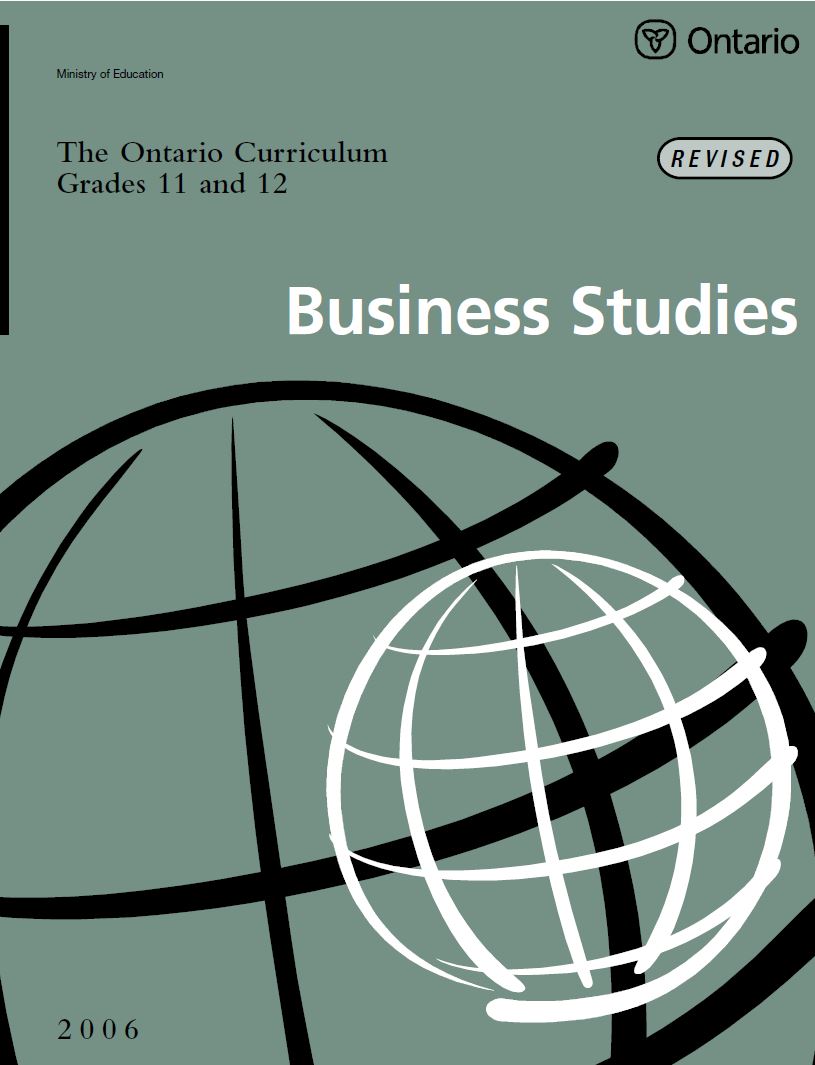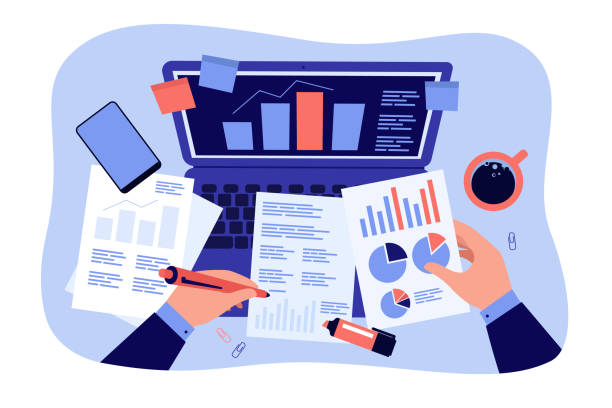Grade 11 Accounting
Overview of Grade 11 Accounting
Accounting is often referred to as the language of business, as it plays a crucial role in nearly every organization and individual’s financial activities. From small neighborhood stores to multinational corporations, businesses rely on accounting to organize, analyze, and communicate their financial information. This financial clarity empowers individuals and organizations to make informed business decisions. By integrating information technology and accounting software into the curriculum, students can be better equipped to thrive in today’s dynamic business landscape. Those who master accounting fundamentals and develop critical thinking skills will gain the confidence to apply accounting principles effectively across a wide range of careers.
Strands
Financial Accounting Fundamentals, Grade 11, University/College Preparation
This course introduces students to the fundamental principles and procedures of accounting. Students will develop financial analysis and decision-making skills that will assist them in future studies and/or career opportunities in business. Students will acquire an understanding of accounting for a service and a merchandising business, computerized accounting, financial analysis, and ethics and current issues in accounting.
- Fundamental Accounting Practices
- Advanced Accounting Practices
- Internal Control, Financial Analysis, and Decision Making
- Ethics, Impact of Technology, and Careers
Accounting Essentials, Grade 11, Workplace Preparation
This course introduces students to the accounting cycle of a service business. Students will use computer applications software to record business transactions and to prepare financial statements. Students will also investigate banking and cash management, decision making, ethical behaviour, and career opportunities in the field of accounting.
- Fundamentals of Accounting for Business
- The Accounting Cycle
- Internal Control, Banking, and Computerized Accounting
- Decision Making, Ethics, and Careers
Ontario Curriculum Breakdown - Grade 11 Accounting (BAF3M)

Specific Expectations
Introduction to Accounting as a Discipline
By the end of the Grade 11 Accounting course, students will:
- Explain the purpose of accounting;
- Explain the difference between accounting and bookkeeping;
- Identify the users and uses of accounting;
- Identify the Generally Accepted Accounting Principles (GAAP) and explain their importance.
Business Structures
By the end of the Grade 11 Accounting course, students will:
- Describe the characteristics of different forms of business organization, including sole proprietorship, partnership, and corporation;
- Describe the advantages and disadvantages of different forms of business organization, including sole proprietorship, partnership, and corporation;
- Explain the differences among the equity sections of different forms of business organization, including sole proprietorship, partnership, and corporation (e.g., capital account in a sole proprietorship versus common stock in shareholders’ equity in a corporation).
The Accounting Cycle for a Service Business
By the end of the Grade 11 Accounting course, students will:
- Assess the effects that transactions have on the accounts and financial statements of a service business;– record transactions using the journals and ledgers of a service business;
- Prepare a trial balance and the financial statements for a service business;
- Record adjusting and closing entries for a service business (e.g., prepaid expenses, amortization, accruals);
- Describe the impact of year-end procedures, including adjusting and closing entries, on the financial statements of a service business;
- Apply the Generally Accepted Accounting Principles (GAAP) at each stage of the accounting cycle for a service business.
Specific Expectations
The Accounting Cycle for a Merchandising Business
By the end of the Grade 11 Accounting course, students will:
- describe the principal accounting elements particular to a merchandising business (e.g., new accounts, cost of goods sold section, returns, discounts);
- identify and describe the periodic and perpetual inventory systems and journalize transactions using both systems;
- assess the effects that transactions have on the accounts and financial statements of a merchandising business;
- record transactions in the journals and ledgers of a merchandising business;
- prepare a trial balance and the financial statements, including a detailed cost of goods sold section, for a merchandising business;
- record the adjusting and closing entries for a merchandising business (e.g., accruals, inventory adjustment);
- describe the impact of year
- end procedures, including adjusting and closing entries, on the financial statements of a merchandising business;
- describe alternative accounting practices (e.g., special journals and ledgers).
Accounting for Sales Tax
By the end of the Grade 11 Accounting course, students will:
- describe the accounting practices particular to sales tax (e.g., accounts required, financial statement presentation);
- record transactions related to provincial sales tax (e.g., collections, remittance);
- record transactions related to federal sales tax (e.g., collections, remittance).
Computer Applications in Accounting
By the end of the Grade 11 Accounting course, students will:
- use accounting or application software to record transactions for a service business;
- use accounting or application software to record transactions for a merchandising business;
- use accounting or application software to prepare financial statements.
Specific Expectations
Internal Control Procedures
By the end of the Grade 11 Accounting course, students will:
- describe the basic elements of an internal control system (e.g., separation of duties, prenumbered documents, rotation of staff);
- apply appropriate control measures used in accounting for assets (e.g., petty cash procedures, bank reconciliation procedures);
- describe the role of budgeted financial statements in planning, controlling, and evaluating business results (e.g., difference between budgeted and actual income statements);
- describe the role and work of an auditor.
Financial Analysis
By the end of the Grade 11 Accounting course, students will:
- explain the importance of current assets and current liabilities when interpreting a balance sheet;
- analyse a company’s liquidity and solvency by using simple financial ratios (e.g., current ratio, debt ratio) and other financial analysis tools (e.g., comparative statements, trend analysis, common size statements);
- analyse a company’s profitability by using simple financial ratios (e.g., gross profit percentage, return on equity) and other financial analysis tools (e.g., comparative statements, trend analysis, common size statements).
Decision Making
By the end of the Grade 11 Accounting course, students will:
- describe how accounting information is used by company personnel (e.g., department managers, owners) in making decisions;
- explain the role of financial analysis in decision making from the standpoint of potential investors (e.g., mutual fund managers, institutional investors, individual investors);
- describe how accounting information is used by individuals or organizations outside the company (e.g., governments, Ontario Securities Commission, police, forensic accountants) in making decisions.
Specific Expectations
Ethics and Current Issues
By the end of the Grade 11 Accounting course, students will:
- describe the role of ethics in accounting;
- explain the need for strict standards (e.g., code of conduct) in the practice of professional accounting;
- identify and describe current issues and developments that have an impact on accounting and the accounting profession (e.g., fraud scandals, the globalization of business transactions).
Impact of Technology
By the end of the Grade 11 Accounting course, students will:
- compare a manual accounting system with a computerized accounting system;
- describe ways in which technology can affect the accounting function (e.g., the effect on the information itself, the accountant’s work, and the security of information systems);
- explain the advantages and disadvantages of technology as it affects accounting.
Careers in Accounting
By the end of the Grade 11 Accounting course, students will:
- distinguish among the professional accounting designations in Canada and the corresponding areas of specialization for accountants (e.g., financial accounting, management accounting, auditing);
- identify the Canadian accounting organizations and describe the services they offer to support accountants;
- identify and describe various accounting career opportunities that do not require professional accounting designations;
- summarize on the basis of research, the educational requirements of various career paths requiring a background in accounting.
York Region Tutoring Provides
If a student is approaching a forthcoming test, we can provide them with a previous test to be completed at home before their upcoming session. Subsequently, during their next class, just before the exam, they can review the test with their tutor. These tests are exclusively sourced from high schools in York Region and other areas in Ontario, serving as the definitive benchmark for students to assess their readiness.
York Region Tutors and are equipped with drawing tablets making collaboration simple, efficient and effective. We also offer drawing tablets at a discount for purchase to students who really take to the functionality of the product.
At the parents’ request, following each tutoring session, our tutors can assign homework tailored to address weaknesses and reinforce strengths in students. Additionally, we incorporate homework questions directly extracted from previous tests and quizzes administered by YRDSB school teachers, allowing students to familiarize themselves with potential test questions.

